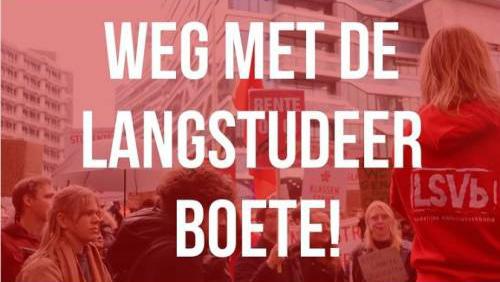Tuition fees might increase for all
Bruins seeks alternative to long-term study fine, says RTL Nieuws

In its government programme, the Dutch cabinet proposes an annual fine of three thousand euros for students who take more than one additional year to graduate. In doing so, the cabinet intends to save 282 million euros each year. However, given the unpopularity of the proposal, Bruins is reportedly considering going back to the drawing board. It would not be possible to introduce the fine in the 2026/2027 academic year, as the government initially planned. Any amendment to the law would come too late for that.
Worrying
Bruins himself does not seem to be a fan of the fine. He said he's heard "worrying stories" from students from poor families or who are informal caretakers. These are just two groups who are more likely to delay their graduation.
The minister recently told the Parliament that he would like to prevent the measure from having a "disproportionately harsh" effect. However, he must also make sure that his ministry realises the cutbacks demanded.
According to RTL, one of the alternatives being considered is increasing tuition fees for Dutch and EEA citizens. Currently, this group pays 2,350 euros yearly. Another option would be to increase tuition fees only for foreign students.
Last year, more than 800,000 people were pursuing higher education degrees in the Netherlands, of whom 340,000 attended research universities like UU and 461,000 attended universities of applied sciences. A quick calculation shows that Bruins would also achieve his cutbacks if all students paid 350 euros extra in tuition fees.
Increasing tuition fees only for foreign students is not easy to do, given the rules established by the EU. European citizens have the right to study in other EU member states, paying the same rate as the locals. The tuition fee increase could be achieved indirectly by increasing the fees for English-taught programmes only, but that would also affect the Dutch students enrolled in those programmes.
Not confirmed
The minister's spokesperson cannot confirm the news. The minister is still working on elaborating the fine for delayed graduation. Student organisations have been protesting the government's plans for months. The National Student Association (ISO) calls the fine “an unfair and unfeasible measure” and believes the minister acknowledges this, given he is reportedly looking for an alternative. ISO would prefer the cabinet to get rid of the cutbacks altogether.
Universities of applied sciences support protests against the fine and have set up a "read-aloud marathon". Throughout the country, politicians, lecturers, administrators and students will read out objections sent by more than 25,000 students to the Association of Universities of Applied Sciences.